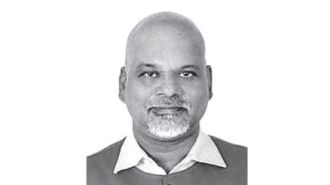The highest forms of wealth
I‚Äôve shared Morgan Housel‚Äôs posts a few times over the past months and years. I think of his content from time to time ‚Äď his ability to source/share memorable stories is best-in-class.
One post that has stuck with me in the past months is ‚ÄúThe Highest Forms of Wealth.‚ÄĚ He calls out 3 forms of wealth ‚Äď here are the excerpts.
1. Controlling your time and the ability to wake up and say, ‚ÄúI can do whatever I want today.‚ÄĚ
Five-year-old Franklin Roosevelt complained that his life was dictated by rules. So his mother gave him a day free of structure ‚Äď he could do whatever he pleased. Sara Roosevelt wrote in her diary that day: ‚ÄúQuite of his own accord, he went contently back to his routine.‚ÄĚ
There’s a difference between working hard because you want to and working hard because someone else told you you had to, and how to do it, and when to do it. Even if you’re doing the same work, the independence of doing it on your own terms changes everything in the same way that sleeping in a tent is fun when you’re camping but miserable when you’re homeless.
To me, the highest form of wealth is controlling your time.
2. When money becomes like oxygen: so abundant relative to your needs that you don’t have to think about it despite it being a critical part of your life.
There’s a scene in the documentary The Queen of Versailles when the son of a man whose ability to make money was exceeded only by his desire to spend it, causing a family fortune to shrivel near the edge of bankruptcy:
On my wedding day my father gave a speech, and he looked at my wife and he said, ‚ÄúYou will never have anything to worry about in your life.‚ÄĚ
But now we worry every day.
A high form of wealth is avoiding that mess. And it isn’t necessarily tied to how much money you have.
Keep two things in mind:
- Desiring money beyond what you need to be happy is just an accounting hobby.
- How much money people need to be happy is driven more by expectations than income.
A thing I‚Äôve noticed over the years is that some of the wealthiest people think about money all the time ‚Äď which is obvious, because it‚Äôs causation. But it‚Äôs an important observation because most people, despite aspiring to become one of the wealthiest, actually want something different: the ability to not have to think about money.
3. A career that allows for intellectual honesty.
This includes: Being able to say, ‚ÄúI don‚Äôt know‚ÄĚ when you don‚Äôt know. Being able to speak critical truths about your industry without fear of retribution. The ability to make reasonable mistakes, and be open about them, without excessive worry. And not pretending to look busy to justify your salary.
There are high-paying careers that allow all those things. But there are so many that don‚Äôt, and a lot of what people pass off as ‚Äúhard work‚ÄĚ and ‚Äúgrinding‚ÄĚ is just finding ways to bury the truth. A job that lets you be open and honest pays a bonus that‚Äôs hard to measure.
All 3 notes resonated deeply.






